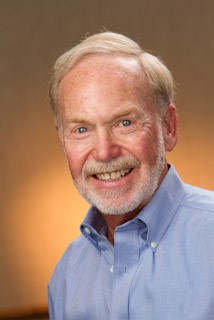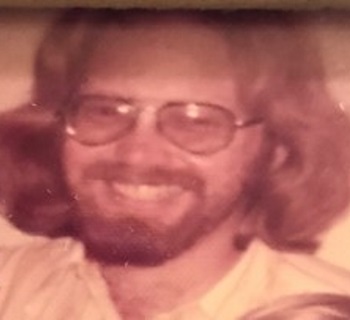Social Work Activists in Action: Influencing, educating and helping others "" the story of Norman Olshansky

Housed in the heart of Detroit, the Wayne State University School of Social Work is committed to listening to and engaging with our community to advance social, economic and environmental justice. We take this responsibility seriously and recognize the role that such partnerships have in strengthening community capacity to address current and future challenges. In times of crisis, such as the current national call for racial equity and social justice, social workers spring into action and work with communities to empower sustainable change.
It is with this mission of both our School and profession in mind that we invite our Warrior Community to explore the rich history of social work activism through the stories of our trailblazing alumni. This issue of the Social Work Activists in Action series will highlight activist, consultant, teacher, author and mentor Norman Olshansky.
What led you to social work?
I grew up in a family of helping professionals. Both my father and mother were involved in community service and education. My Jewish background taught me about social justice and the importance of "tikkum olam", to help repair the world. After serving as a VISTA Volunteer in NYC and Boston, I decided to pursue a career in social service. Following undergraduate school in Virginia at William and Mary and Virginia Commonwealth University, I selected the Wayne State University School of Social Work. The School was perfect fit in the 1960's as it was one of only a few programs in the country that had a focus on public policy and community development. By 1971 I had earned my Masters in Social Work from Wayne State.

What was the movement/call to action you focused on during your career?
I grew up in the South, where segregation, racism and anti-Semitism were all around me. Civil rights, anti-war, and the beginning of the drug culture were part of the culture in the late sixties. From high school on, I was involved in activities, programs and activism related to improving the human condition and social justice. It was in high school that I learned my leadership skills and developed an ability to speak in front of groups. I credit my forensic classes and activities in theatre and music for developing my speaking and presentation skills. These skills were essential assets throughout my career as I worked to influence, educate and help others.
My field placements at Wayne State also contributed to my work throughout my career. My first year I was a legislative aid to State Senator Roger Craig in Lansing. My second year was with AFSCME, a labor union representing social service and nonprofit workers. I also was President of the Social Work Student body and worked full time as the founding director of Common Ground. My work later in the area of public policy was greatly enhanced by my knowledge of the legislative process and political influences that I learned in graduate school. Work with the union helped me during my administrative and executive leadership roles with nonprofits. Legal and human resource issues were constantly part of what I had to deal with during my career. My work with the union provided excellent preparation for dealing with those issues.
What tips do you have for activating change in communities when one is seen as an "outsider"?
I considered myself an advocate and facilitator for change throughout my career working with Common Ground, as the Regional Director for the Anti-Defamation League, as Executive Director of numerous nonprofits, as a Jewish Communal professional, and as a national consultant to nonprofits.
I learned early in my career that one must put a lot of effort into planning if one is to create change. I learned that return on investment of time and resources is a critical component of success. Knowing your friends AND adversaries is critical to making change since so much of social action is dependent on having good relationships; one can't be shy. Network and meet as many people as you can because you never know when you may need or want to call upon them for assistance.
What pieces of advice do you have for students and social workers in the field who want to empower social change in their communities?
- One can't be successful alone: Surround yourself with good people who you can trust and LISTEN to what others have to say. Be appreciative of those within your group and who contribute to your success. Put ego aside for the cause.
- Take calculated risks if you want change: I had to step out of my comfort zone many times when confronting the Klan, lobbying in Congress or getting board members who were all powerful CEO's to work well together.
- Ask for advice: One of the best ways of developing relationships is to ask for advice.
- Take the high road: Sometimes shortcuts or impulse actions can get you in trouble. Doing the right thing may take more time but usually creates longer lasting results. When involved in social action don't do anything you wouldn't want to read about on the front page of the newspaper or on social media.
- Give back: Giving back doesn't always have to be in the traditional manner of volunteering your time. Giving back can encompass teaching, such I have done with social action courses and in sharing knowledge via publications. I have published an extensive list of articles on nonprofit management, governance and fundraising, which are available on my blog. I have also tried to give back and share my knowledge via my book, You and Your Nonprofit.
Olshansky is currently retired and volunteers within several nonprofit and social service organizations. He lives in Sarasota, Florida and can be reached at NFPConsultingresources@gmail.com.
Are you a Wayne State Social Work alum interested in sharing your story of activism? Contact our Indivdiual Giving Officer Katy Willoughby at kwilloughby@wayne.edu. View more Social Work Warrior alumni and donor spotlights.